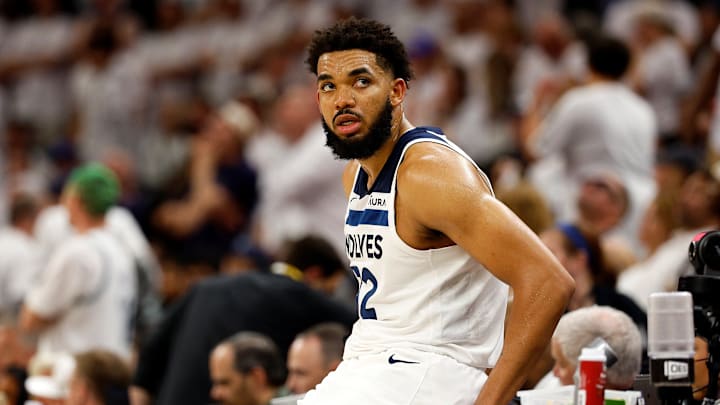2. Kyle Anderson
Once a fan-favorite, Kyle Anderson has seemingly turned expendable overnight. In his first season in Minnesota, Anderson provided a spark off the bench as well as quality starter minutes replacing the injured Karl-Anthony Towns.
In 69 appearances and 46 starts, Anderson put up 9.4 points per game. The UCLA product displayed a well-versed offense game. He added a career-high 4.9 dimes per contest and knocked down 41.0 percent of his triples.
Anderson was also impressive on the defensive end. He averaged 1.1 steals and 0.9 blocks per game. The Wolves were 3.5 points per 100 possessions better with Anderson on the court a season ago. The 6-foot-9 forward didn't fare nearly as well this past season.
Anderson's averages decreased across the board. He suddenly lost his outside touch and declined as a defender. In turn, Minnesota was 1.9 points per 100 possessions worse with Anderson on the floor. After playing 22.8 minutes per game in the regular season, his minutes were reduced to 14.2 in the postseason.
In Minnesota's first two series, Anderson's spot in the rotation appeared to be on thin ice. He averaged just 10.0 minutes per game against the Phoenix Suns before playing 12.6 minutes per contest in the Western Conference Semifinals.
However, the veteran forward did revive some of his value in the Conference Finals. In 22.4 minutes per game against the Dallas Mavericks, Anderson averaged 7.4 points, 2.8 boards, and 3.4 assists. The 30-year-old wing ranked third amongst Wolves in net rating. He played an integral part off the bench for Minnesota.
Although Anderson played well in the Western Conference Finals, his full body of work left much to be desired. He's a valued veteran presence, but it's unlikely the Timberwolves will re-up Anderson's contract—his lack of shooting cramped the offense's spacing and his defense didn't make all to much of a difference.
